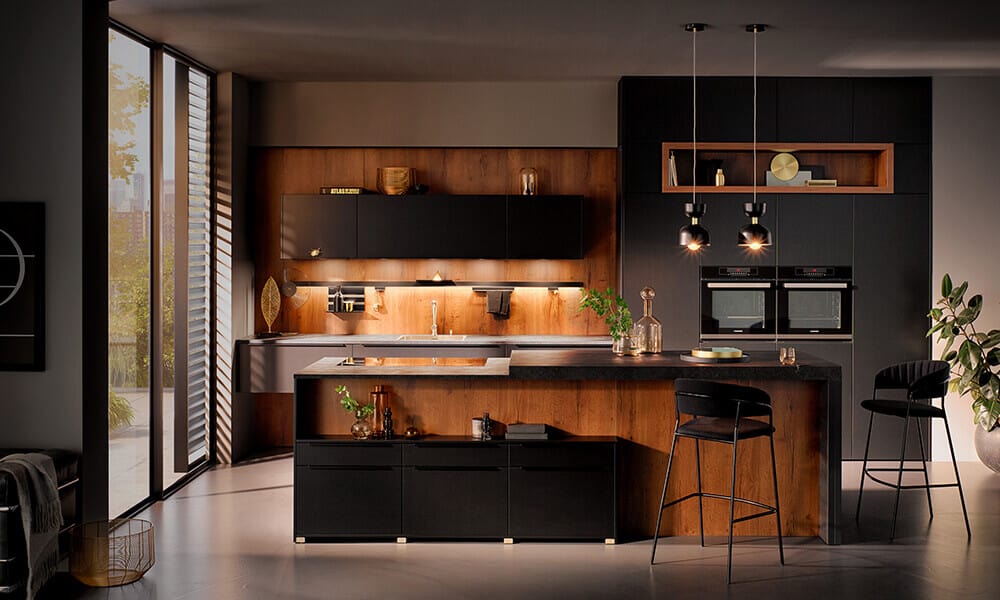Renovating a kitchen is one of the most complex and expensive home improvement projects you can undertake. From layout changes and plumbing adjustments to cabinetry installation and electrical rewiring, a kitchen renovation involves many moving parts that require careful coordination. This leads many homeowners to ask: should you hire a contractor, or manage the project yourself?
Here’s a detailed breakdown of when hiring a contractor makes sense—and what you risk by skipping professional help.
What Does a Kitchen Renovation Involve?
A full kitchen renovation typically includes:
- Demolition of existing fixtures and finishes
- Plumbing and electrical modifications
- Installation of cabinets, counters, and flooring
- Appliance integration
- Painting, lighting, and finishing touches
Each of these stages often involves different trades and permits. Managing them without a background in construction can be time-consuming and prone to costly mistakes.
Benefits of Hiring a Contractor
1. Project Management Experience
One of the biggest advantages of hiring a contractor is centralized project management. Contractors coordinate with plumbers, electricians, cabinet installers, and inspectors to keep everything on schedule and within budget. Without one, you’re left managing each subcontractor yourself—a task that often leads to delays or miscommunication.
2. Building Code Knowledge and Permits
Most kitchen renovations require permits, especially if structural, electrical, or plumbing changes are involved. Contractors are familiar with local building codes and can handle the permitting process to ensure your renovation complies with all safety standards.
3. Access to Quality Materials and Subcontractors
Experienced contractors have working relationships with trusted tradespeople and suppliers. In many professionally managed projects, including those involving Cuisines Rosemere kitchen renovation, the contractor may even help source custom cabinetry or specialty finishes more efficiently and affordably than a homeowner could on their own.
4. Time Efficiency
Contractors work full-time in renovation. Unlike homeowners juggling personal responsibilities, they can dedicate the necessary hours each day to keep the project moving forward. This often results in a quicker, smoother renovation process.
5. Warranty and Accountability
Licensed contractors typically provide warranties on their work. If something breaks or fails after the renovation is complete, they’re legally responsible for making it right. This is not the case when hiring independent laborers without oversight or managing things DIY.
Risks of Not Hiring a Contractor
1. Lack of Technical Knowledge
Mistakes in plumbing or electrical systems can be dangerous and lead to major costs later. Even tasks like leveling cabinets or installing countertops require precision tools and expertise.
2. Scheduling Conflicts
Without experience, homeowners often miscalculate the timing between trades. For example, tiling may be scheduled before plumbing rough-ins are completed, leading to delays and rework.
3. Permit and Code Violations
DIY renovations that skip proper permits or ignore code requirements can result in fines, failed inspections, and complications when selling your home.
4. Increased Overall Costs
Though hiring a contractor is a financial investment, poor DIY work that needs correcting can cost even more. Improper installations can result in water leaks, electrical hazards, or structural damage—each of which is more expensive to fix after the fact.
When Can You Skip a Contractor?
Hiring a contractor may not be necessary for very minor kitchen updates like repainting, changing cabinet handles, or replacing lighting fixtures. These small tasks can often be completed safely by a handy homeowner. However, the moment your renovation touches plumbing, gas lines, or electrical systems—or requires major layout changes—a contractor becomes essential.
Final Thought
Hiring a contractor for your kitchen renovation isn’t just about convenience—it’s about quality, safety, and long-term durability. While the upfront cost may be higher than DIY or hiring individual trades, the risk reduction and professional outcome are often well worth it for complex renovation projects.





